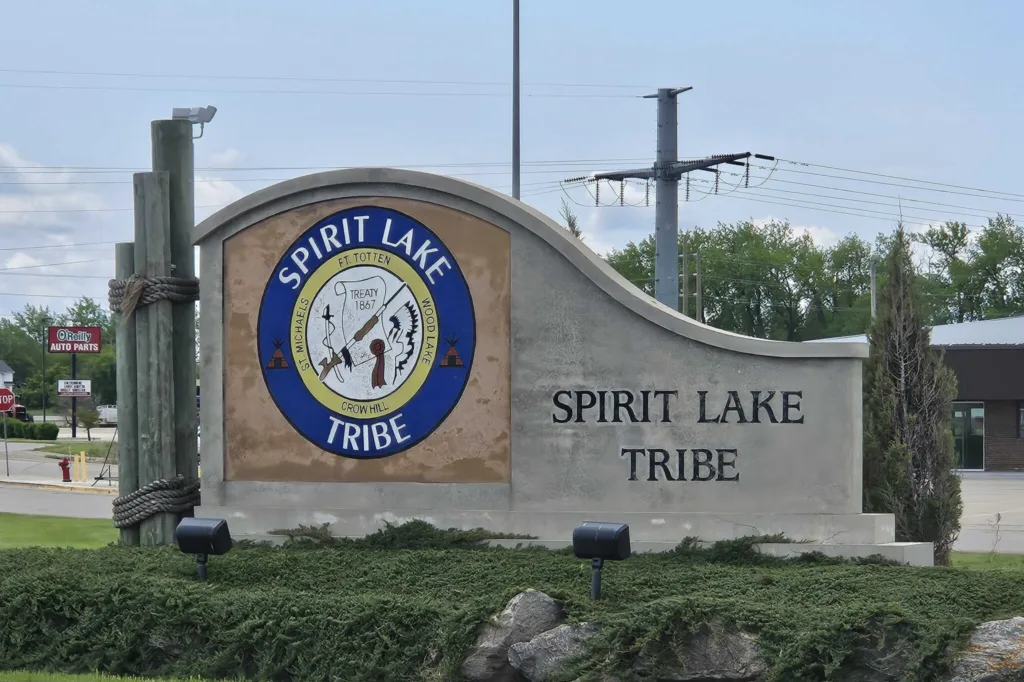

By: Mary Steurer (ND Monitor)
Two North Dakota Native tribes and a group of tribal citizens plan to ask the U.S. Supreme Court to review a court decision that found they don’t have standing to sue the state of North Dakota for alleged voter discrimination.
The 8th Circuit Court of Appeals in the ruling concluded that private voters have no way of challenging unfair voting practices under Section 2 of the Voting Rights Act, which outlaws voter discrimination based on race.
“That decision is plainly wrong, and it will have a huge impact on Native voters,” Lenny Powell, a Native American Rights Fund attorney representing the plaintiffs, said in a Tuesday statement.
The ruling came in a case involving the Turtle Mountain Band of Chippewa, Spirit Lake Nation and three tribal members, who took North Dakota to court over a 2021 redistricting map the tribes say illegally diluted the power of Native voters.
North Dakota U.S. District Court Judge Peter Welte in 2023 sided with the plaintiffs and ordered the state to adopt a different map.
A panel of three 8th Circuit Court of Appeals judges in May voted 2-1 to reverse that finding. The panel indicated it would send the case back to Welte and direct him to dismiss the lawsuit. If allowed to go into effect, this decision would reinstate the original 2021 map.
The plaintiffs asked the full 8th Circuit to rehear the case, though the court denied that request last week.
Now the plaintiffs are gearing up to petition the U.S. Supreme Court to review the case. In a brief filed Wednesday, the plaintiffs asked the 8th Circuit to allow Welte’s map to stay in place until the high court decides whether it will weigh in. The court on Thursday denied the request.
The 8th Circuit is the only appellate circuit to find that private individuals cannot bring lawsuits under Section 2 of the Voting Rights Act. The court in a 2023 decision in a separate case found that it’s the sole responsibility of the U.S. attorney general to enforce compliance with Section 2.
The 8th Circuit’s findings in the North Dakota case reaffirmed this position. The plaintiffs had attempted to use a separate civil rights statute, Section 1983 of Title 42 of the United States Code, as an alternative means of bringing their voting rights claim, but the three-judge panel ruled this was not possible.
While it’s very rare for the U.S. Supreme Court to agree to hear a case, the plaintiffs in their most recent brief argued that the high court may be interested in the lawsuit because of the importance of voting rights and to resolve the different positions the 8th Circuit and other circuits have taken on the issue.
Because of the circuit split, the plaintiffs think there is a “reasonable probability” that at least four of the nine justices on the Supreme Court will want to review the case.
The plaintiffs are hopeful the Supreme Court will ultimately reverse the 8th Circuit’s decision.
The Supreme Court has always allowed private individuals to file discrimination claims under Section 2 of the Voting Rights Act, they argue in the brief.
North Dakota maintains that the 2021 map is not discriminatory and that the tribes lack standing to sue.
The 8th Circuit includes North Dakota, South Dakota, Minnesota, Iowa, Missouri, Nebraska and Arkansas.
This story was updated to correct the states in the 8th Circuit and to update the status of a motion.